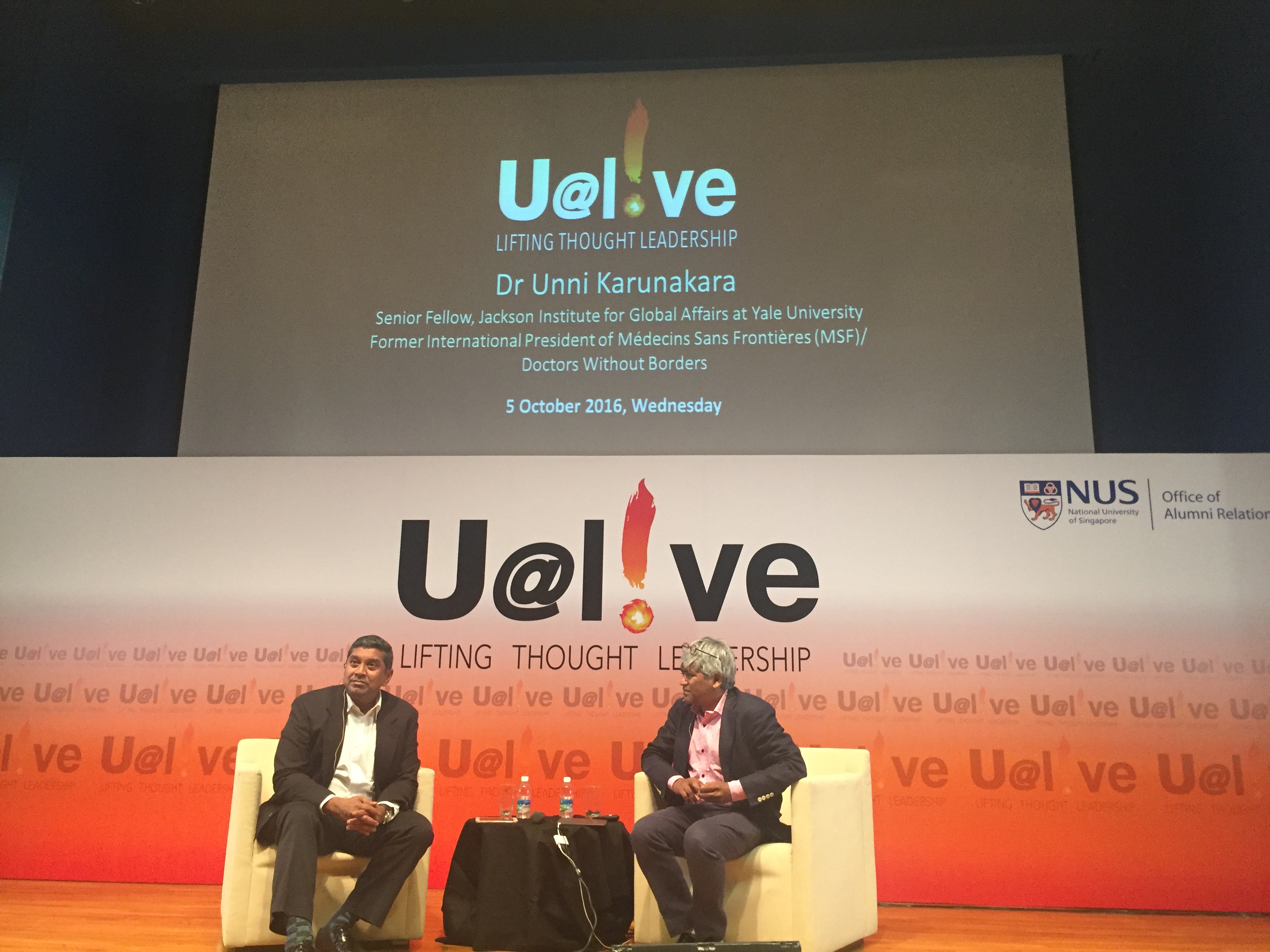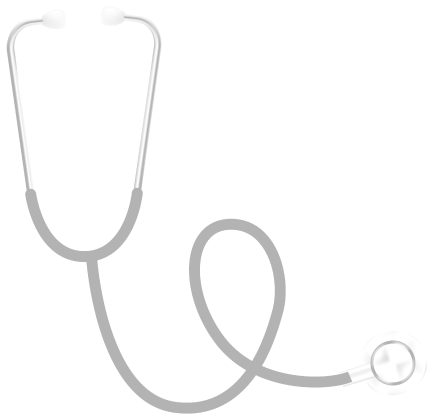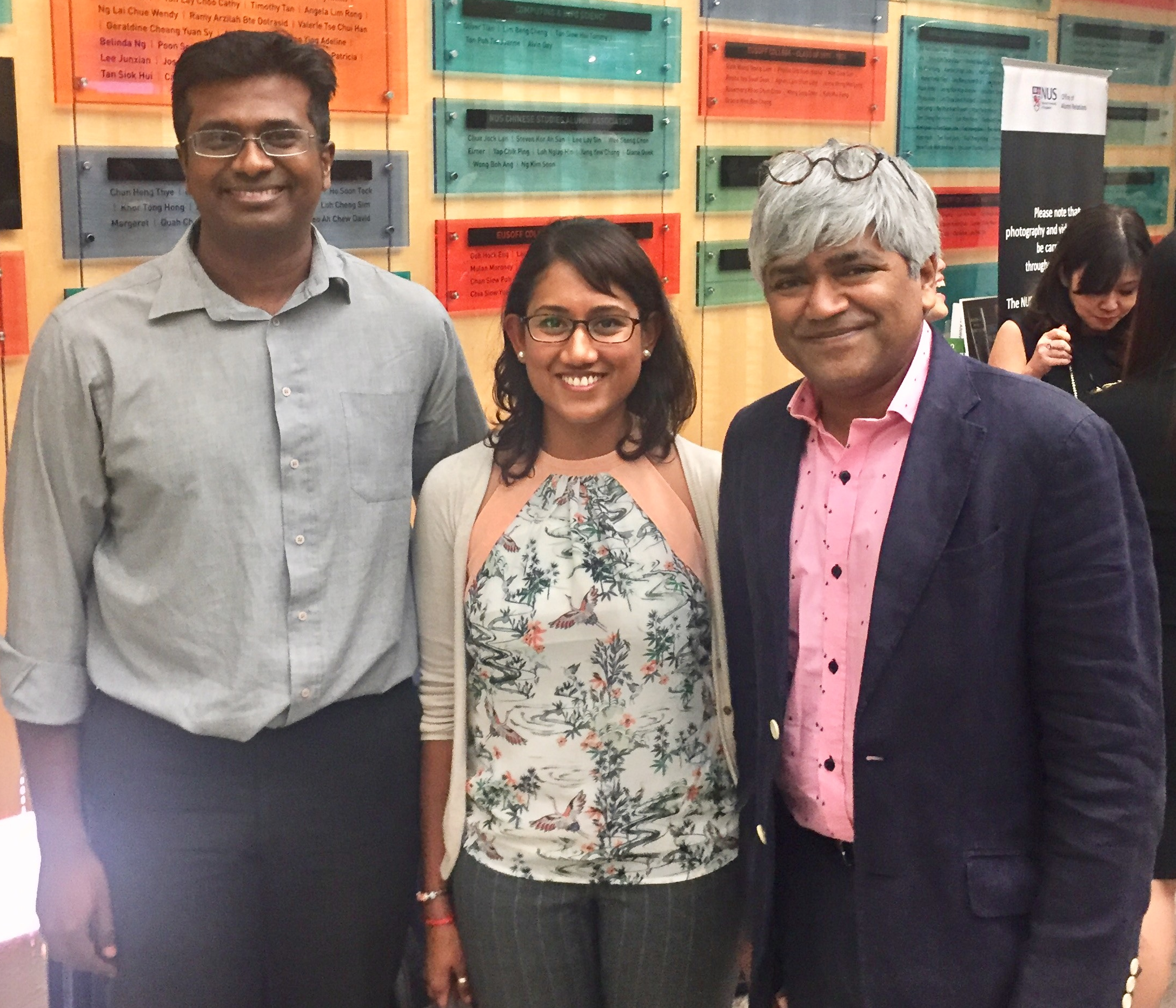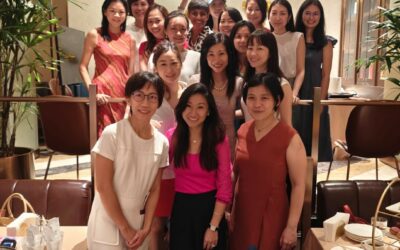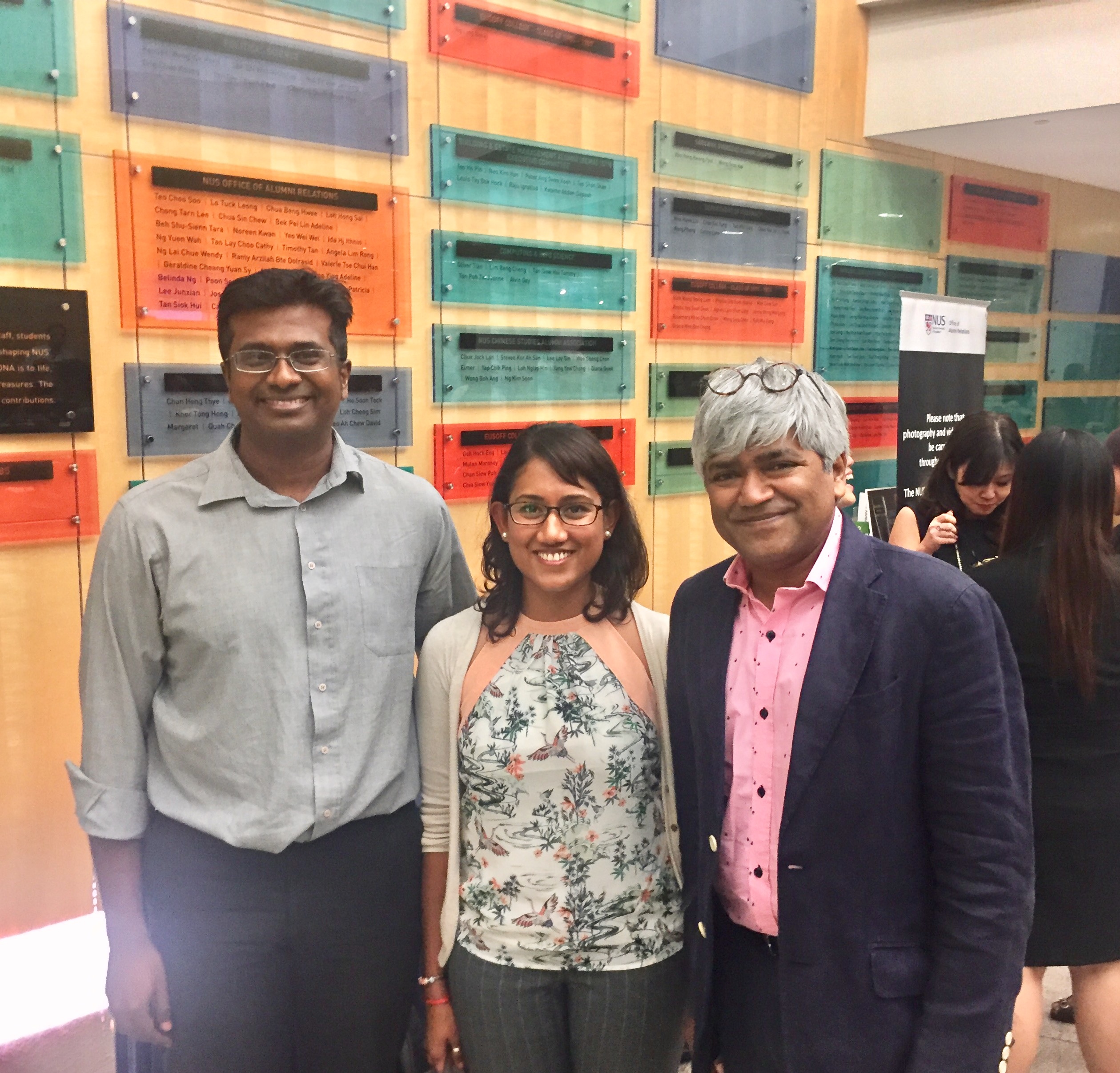
An Insight to Humanitarian Work- from the ex-chair of MSF
AWDS had the honour of being invited to the U-live talk by Dr Unni Karunakara. The ex International President of MSF gave a thought provoking and eye-opening talk on the current state of our global health and humanitarian work.
The timing of Dr Unni’s talk could not have been more apt. It is exactly 1 year since the bombing of the Kunduz hospital in Afghanistan. After which, many more hospitals have been bombed. Hospitals and healthcare workers have always been on neutral grounds and hence protected even in times of war. However, things have changed- the laws have been breached and the safety of hospitals have started to become an issue.
Dr Unni started his specialty training in Radiology but as it “didn’t feel quite right” to him along the way, he made the switch to Public Health. Following that, he joined MSF and made his first life-changing trip to Africa. After which, he continued on in MSF, where he was involved in various projects, including the set-up of a tuberculosis control program in Ethiopia.
He has seen the development of MSF, the changing political climate and the resultant healthcare needs of the world. The healthcare needs are getting more dire and desperate..but yet politics is re-defining the boundaries and making it harder for healthcare to reach the people who are in real need.
His job has brought him to places many may not have even heard off and he has interacted with officials some may not dare speak to. Yet he remained rooted and spoke from his heart. There was no air when he shared his heart-wrenching stories such as the ones where the MSF volunteers were involved in rescuing the refugees from the sea- the refugees would scurry to get on board the MSF rescue boat. In the process, some would have fallen into the sea. His stories nailed home the truth of the dire situation that our global health is currently in.
He described the 4 pillars of humanitarianism which are humanity, being impartial, being independent and being neutral. Such qualities are essential if one plans to do humanitarian work in war torn countries.
However, neutrality can be a challenging concept indeed. Even if one remains neutral politically, the host country has to be convinced of the organisation’s neutrality. MSF has been successful in doing so and hence is able to conduct their work in such countries.
MSF works independently from the government in the various countries. Their role is purely to meet the healthcare needs of the vulnerable population in conflicted areas. They do not get involve with the political issues of that area. However, he sadly reminded us that what MSF does is only to help with the medical issues and most of them have arisen due to political instability within the country. He mentioned that ‘The need for humanitarian assistance reflects the country’s political failure’. Hence as long as the political issues remain unresolved, global healthcare will be an issue. The frustration was evident in his voice as he spoke of this.
He also helped to differentiate between the different types of humanitarian action and developmental work- developmental work re is the type that deals with systems where the main aim is to elevate poverty while humanitarian work and a second type that treats patients and aim to elevate suffering. MSF falls in the latter.
Lastly he ended off by saying that when we help in such situations, we should not compare and feel guilty for what we have in our lives. Instead we should appreciate what we have, understand and empathise with their situation.
Listening to him speak, many thoughts ran through my head- one of the most prominent thought was how important it is for us to understand the global healthcare state from medical school itself. Since medical school, we have been trained to understand disease processes, how to diagnose, investigate and treat our patients. Very seldom do we get to learn about the interaction of healthcare, society and politics and understand how the decisions being made in US and Brussels can change the lives of many. We learn to deal with one patient at a time but not how to handle systems. We remain oblivious to how the bigger systems affect the care of the patient we are treating; And when we do finally understand, we may get jaded by the system and lose the energy to try make changes. We leave on this same earth.. Yet much remains unknown to us.
My thoughts were as re-in forced when a medical student stood up to ask what specialty would be useful to take up if one is considering to consider joining MSF. And it was aptly answered by Dr Unni – it is not about the specialty that one takes up but the mindset that one has. It is about the way we think and approach the problem. My thoughts then- Humanitarian aid and Global citizenship comprises more than just the professional skills we have. It is a mindset… a mindset that ‘We are one’. Perhaps such a mindset will be beneficial to improving our own systems at home too.
His talk can be found on:
https://www.youtube.com/watch?time_continue=601&v=yHTUTsX0sa8
Text and Photo by Gayathri, Committee Member of AWDS
